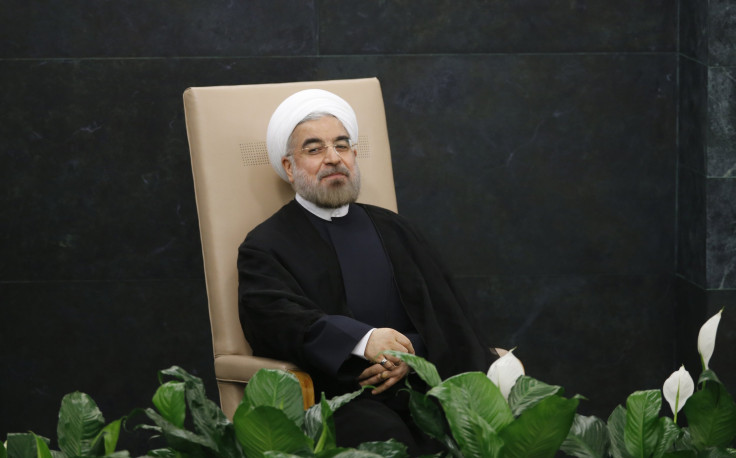July Deadline For Iran Nuclear Deal Appears In Jeopardy: Envoys

(Reuters) - It is increasingly unlikely that six world powers and Iran will meet their July 20 deadline to negotiate a long-term deal for Iran to curb its nuclear program in return for an end to economic sanctions, diplomats and analysts say.
In theory, an extension to the high-stakes talks should not be a problem if all sides want it. But President Barack Obama would need to secure Congress' consent at a time of fraught relations between the administration and lawmakers.
Iran, the United States, Britain, France, Germany, Russia and China included the July 20 deadline to reach a comprehensive agreement in an interim deal they reached in Geneva on Nov. 24.
The November agreement allowed for a six-month extension if more time was needed for a final deal to end sanctions on Iran and remove the threat of war.
An extension would allow up to half a year more for limited sanctions relief and limits on Iranian nuclear work as agreed in Geneva. To avoid an open conflict with Congress, Obama would want U.S. lawmakers' approval to extend that sanctions relief.
The latest round of talks in Vienna last month ran into difficulties when it became clear that the number of enrichment centrifuges Iran wanted to maintain was well beyond what would be acceptable to the West. That disagreement, envoys said, can be measured in tens of thousands of centrifuges.
As a result, the latest round of Vienna talks broke off last month with Tehran and Western powers accusing each other of being unrealistic.
While talk of an extension could be a negotiating tactic, members of both sides appeared to favor the idea.
EXTENSION A "FOREGONE CONCLUSION"
Barring a surprise breakthrough in the next round in Vienna on June 16 to 20, Western officials said an extension was virtually a foregone conclusion. "We're far apart," one diplomat said, adding that the talks would be "long and complicated."
The sides said last month that they had intended to start drawing up a final pact but the full-scale drafting did not actually start.
French foreign ministry spokesman Romain Nadal said the priority for France was to reach a good deal rather than to rush through an agreement.
An Iranian official told Reuters, "We have to get rid of the sanctions immediately. Therefore, the talks will end when this issue is totally resolved. A few more months will kill no one." Pushing the deadline to October would be fine, he said.
Tehran insists it needs to maintain a domestic uranium enrichment capability to produce fuel for nuclear power plants without having to rely on foreign suppliers.
Western governments and their allies suspect Iran wants the ability to produce atomic weapons, an allegation Tehran denies.
No one had an interest in letting the negotiations collapse and boosting the risk of war, said Gary Samore of Harvard University, who was the National Security Council's top nuclear security official in the first Obama administration.
"Although there will be strong opposition in both Washington and Tehran, I don't think either side can afford to take the blame for walking away from the table if the other side is prepared to continue," said Samore.
IRAN REFORMS AT STAKE
Failure of the talks would strengthen the position of hard-liners in Iran's clerical establishment against President Hassan Rouhani, a pragmatist who has sought to improve relations with the United States. The countries broke off ties during a hostage crisis after the 1979 Islamic Revolution.
"Rouhani has put all his eggs in this basket. Failure of the talks means failure of reforms in Iran," an Iranian official close to Rouhani's government said.
If there is an extension, the Obama administration will seek the blessing of Congress. U.S. officials voiced confidence to Reuters they would ultimately get it, but it appears it would not come without a fight.
Members of Congress are already expressing concern about a possible delay. Republican Representative Kerry Bentivolio said last week that Obama had not updated lawmakers on the Vienna talks frequently enough.
To get an extension, he said, "Iran must make real and meaningful concessions and convince us it is not simply stalling."
Privately, administration officials said they believed members of Congress were unlikely to risk the blame for torpedoing the talks. "They (Congress) don't want to take the blame for destroying a deal," one U.S. official said.
© Copyright IBTimes 2024. All rights reserved.











